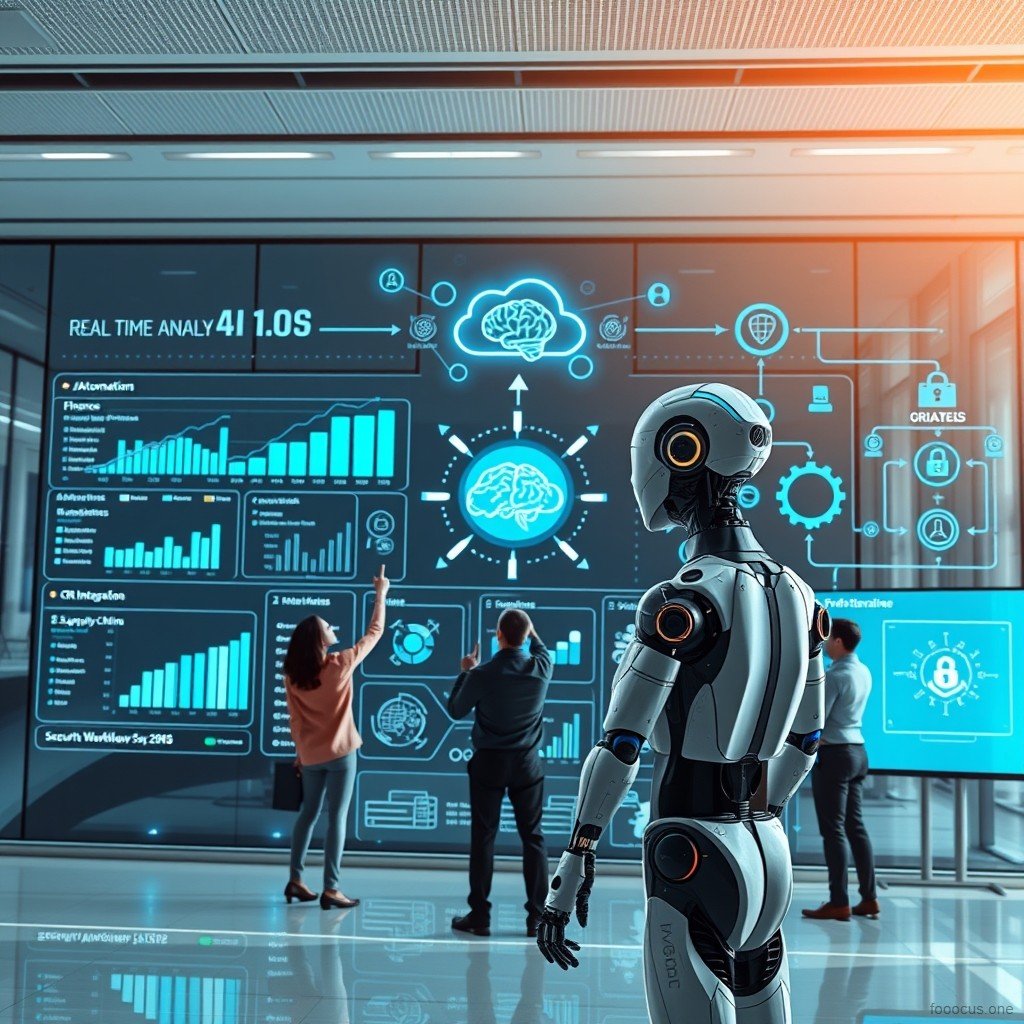Artificial intelligence of the future: How AI will transform our World
Introduction
The future of artificial intelligence is set to transform every aspect of our lives advancing from human level reasoning to leveraging quantum computing for unprecedented problem solving capabilities. By 2030 AI systems will go beyond automating repetitive tasks to actively enhancing human creativity and delivering highly personalized experiences.
These intelligent technologies will tackle complex challenges across industries that were once considered impossible to solve. Through continual learning and adaptation AI will seamlessly integrate into daily workflows driving innovation and efficiency. This transformation will not only reshape businesses but also redefine how individuals interact with technology fostering new opportunities for growth and development.
The Evolution of Artificial Intelligence
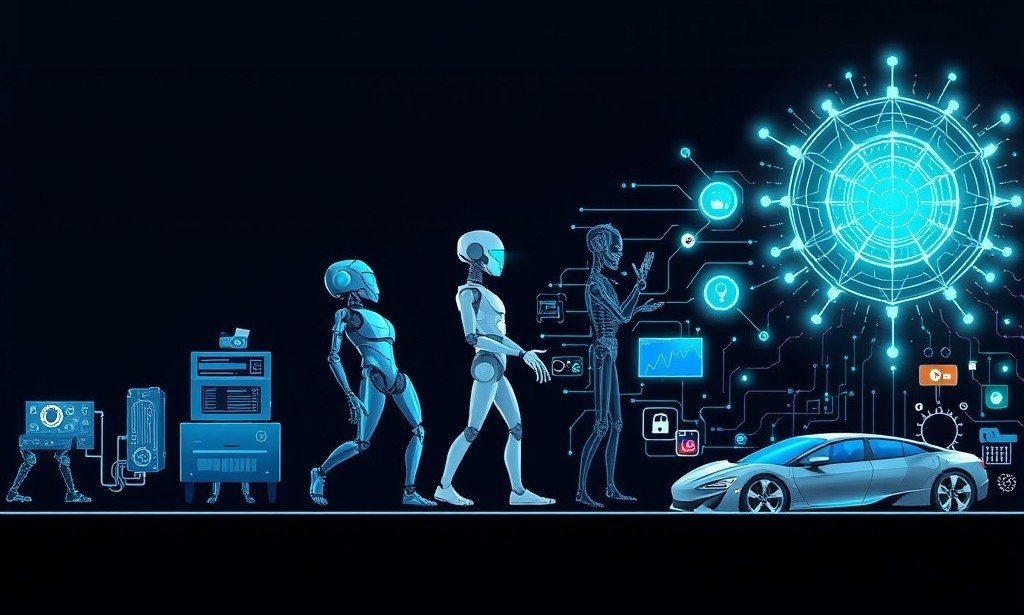
AI has progressed from rule based scripting to deep learning models capable of human like reasoning and creativity. Today’s breakthroughs in large scale self supervised learning and multi modal architectures are paving the way toward Artificial General Intelligence(AGI) systems that can learn, adapt and reason across domains.
Industry experts predict initial AGI capabilities could emerge within the next decade driven by exponential growth in compute and algorithmic innovation (https://www.forbes.com/sites/craigsmith/2025/01/07/entering-the-artificial-general-intelligence-spectrum-in-2025/) (https://digitaldefynd.com/IQ/evolution-of-explainable-ai-xai/).[1
Emerging AI Trends Shaping the Future
General Artificial Intelligence(AGI) will enable machines to perform any intellectual task humans can from complex problem solving to creative storytelling. Explainable AI (XAI) is vital for transparency and accountability in high stakes fields by providing human understandable rationales for AI decisions (https://digitaldefynd.com/IQ/evolution-of-explainable-ai-xai/).
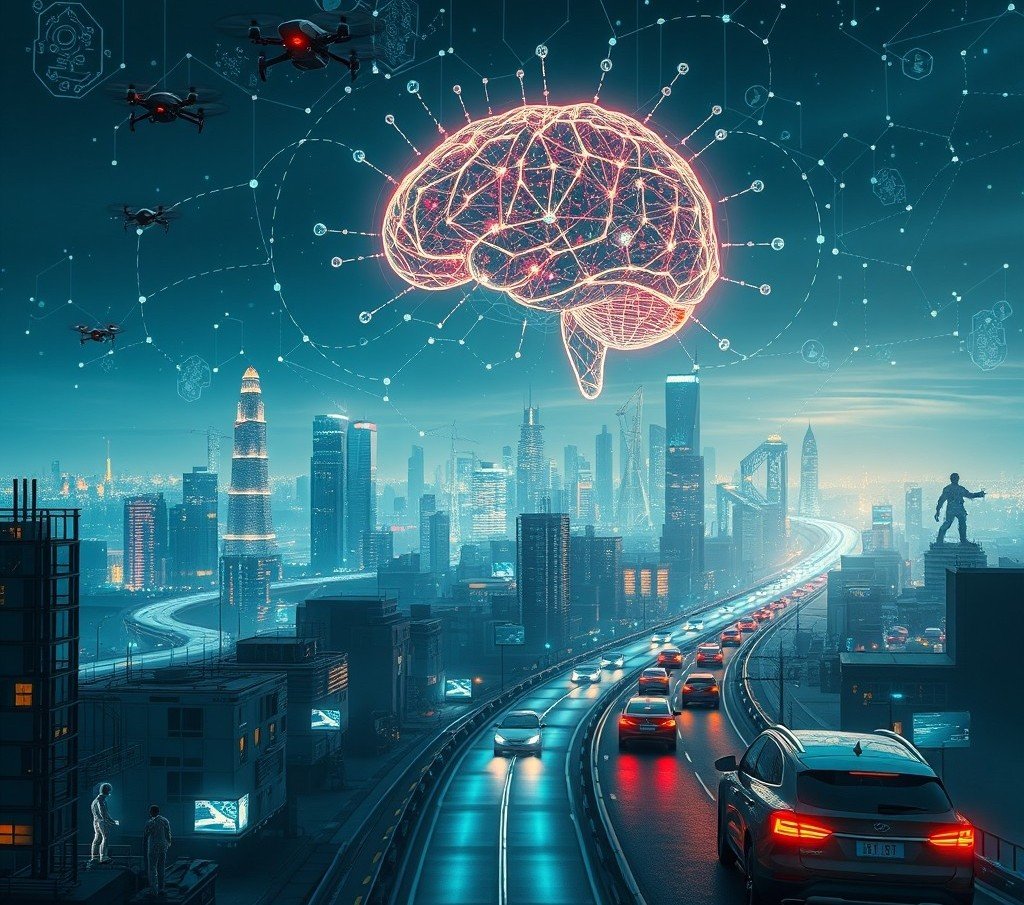
AI driven personalization will deliver real time tailored experiences already saving Netflix over $1 billion annually through recommendation engines. Integration with quantum computing promises exponential processing power unlocking breakthroughs in genomics, cryptography and optimization. https://www.veritis.com/blog/top-applications-of-quantum-computing/
1. General Artificial Intelligence (AGI)
Unlike narrow AI that performs specific tasks, AGI aims to replicate the full range of human intelligence. The future of AI depends on achieving AGI, where machines will reason, solve problems, and even exhibit creativity.
2. Explainable AI (XAI)
As AI systems become more complex, understanding how they make decisions becomes vital. Explainable AI ensures transparency and accountability, especially in high-stakes sectors like healthcare and law.
3. AI-Driven Personalization
The next phase of AI will enable hyper-personalized experiences, from custom education plans to tailored medical treatments, thanks to real-time data processing and predictive analytics.
4. Integration with Quantum Computing
Quantum AI will allow exponential increases in processing power. This will revolutionize problem-solving in fields such as genomics, drug discovery, and encryption.
Future Applications of Artificial Intelligence
Healthcare will see precision diagnostics and robotic surgeries guided by real time data analysis improving outcomes and reducing errors. Education will be transformed by AI tutors and adaptive learning platforms that customize curricula to individual needs, boosting engagement and achievement. Smart cities will leverage AI for traffic flow optimization, energy management and predictive maintenance enhancing urban livability and sustainability.
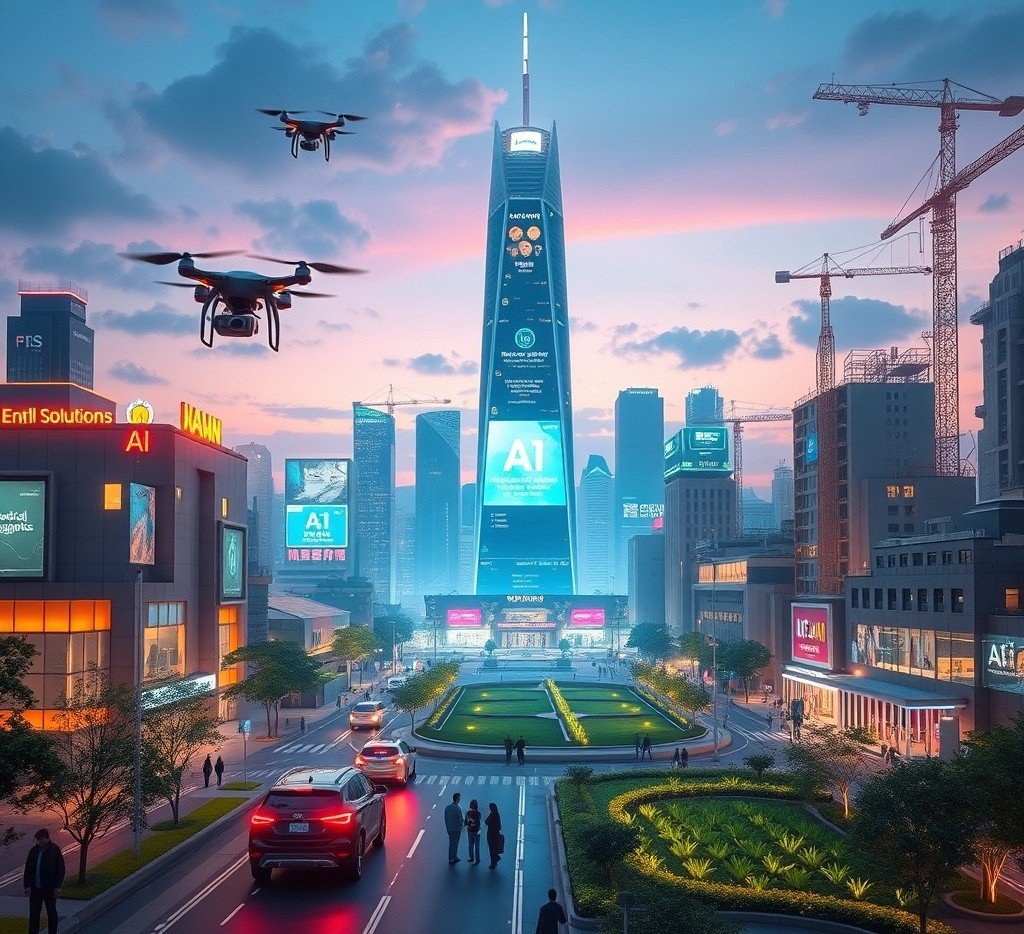
In agriculture AI-powered drones and sensors will automate farming tasks, optimize crop yields and enable sustainable resource use through real time environmental monitoring. Finance will continue to adopt AI for fraud detection, algorithmic trading and personalized financial advice reshaping how we manage money
Healthcare
AI is driving a revolution in healthcare by enabling precision medicine which tailors treatments to individual genetic profiles, environments and lifestyles. AI analyzes vast and complex datasets, such as genomics, medical imaging and electronic health records to provide faster more accurate diagnoses and personalized treatment recommendations.
With advancements like AI powered genomic sequencing clinicians can make real-time decisions that improve patient outcomes including early cancer detection and targeted therapies. Robotic surgeries enhanced by AI deliver greater precision and reduce human error expanding capabilities in delicate and complex procedures. AI also automates workflow tasks for healthcare professionals helping reduce burnout and allowing them to focus more on patient care. Together these innovations promise a future where healthcare is more effective, personalized and accessible than ever before.
Sources:
- https://lifebit.ai/blog/precision-medicine-trends-2025/
- https://www.datamintelligence.com/research-report/ai-in-precision-medicine-market
- https://www.startus-insights.com/innovators-guide/trends-in-precision-medicine/
- https://ardigen.com/ai-precision-medicine-the-future-key-insights-from-pmwc-2025/
- https://lifebit.ai/blog/ai-for-precision-medicine/
Education
AI is transforming education by introducing intelligent tutors and adaptive learning platforms that tailor instruction to each student’s unique needs and pace. These systems analyze learning styles, progress and challenges to personalize content making education more engaging and effective. By providing instant feedback and customized resources AI helps students master concepts more quickly while addressing gaps in knowledge.
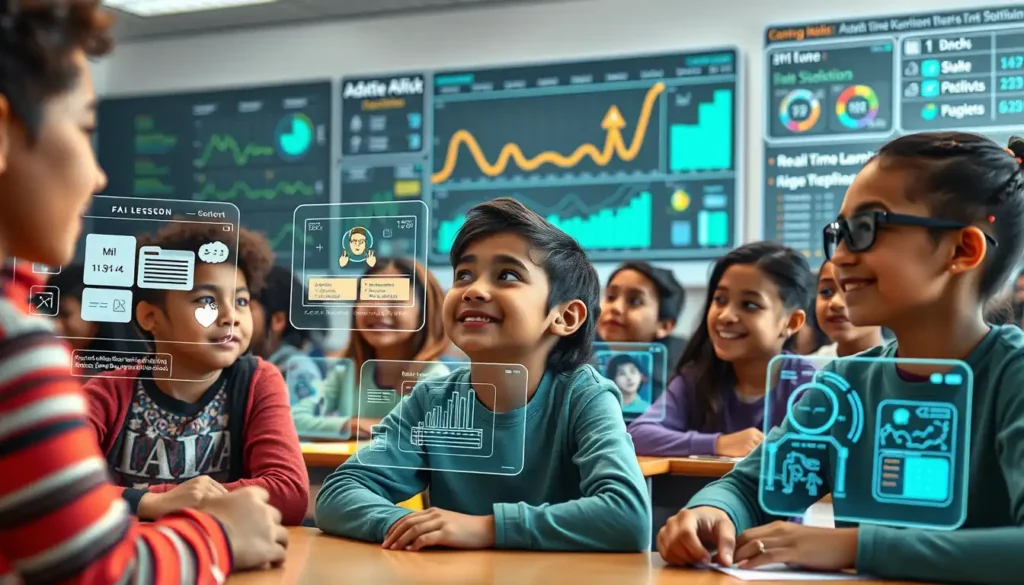
This approach also supports teachers by automating administrative tasks and offering insights to guide instruction. Scalable AI driven education solutions increase accessibility reaching learners across diverse geographies and backgrounds. Overall AI is enhancing educational outcomes by creating a more inclusive, interactive, and student-centered learning experience.
Smart Cities
AI driven intelligent traffic control, energy management and predictive maintenance are becoming fundamental elements of modern smart city infrastructure. These systems harness real time data from interconnected sensors to optimize traffic flow, reduce congestion and lower emissions as seen in cities like London leveraging predictive models to manage urban mobility. Energy management utilizes AI and IoT integration to monitor consumption, allocate resources efficiently and store surplus energy, promoting sustainability and cost savings. Predictive maintenance powered by AI helps identify infrastructure issues in advance preventing costly breakdowns and service disruptions.
Edge computing enhances these capabilities by processing data close to its source enabling faster decision making and more responsive urban services. Together these technologies enable cities to proactively adapt to residents’ needs improving urban livability, safety and environmental impact in a smart, connected ecosystem. https://www.linkedin.com/pulse/how-ai-iot-transform-cities-2025-smartcityexpoworldcongress-qyc7e
Sources:
- https://www.linkedin.com/pulse/how-ai-iot-transform-cities-2025-smartcityexpoworldcongress-qyc7e
- https://www.trigyn.com/insights/trends-smart-cities-and-iot-2025
- https://www.deloitte.com/global/en/Industries/government-public/research/ai-powered-cities-of-future.html
Agriculture
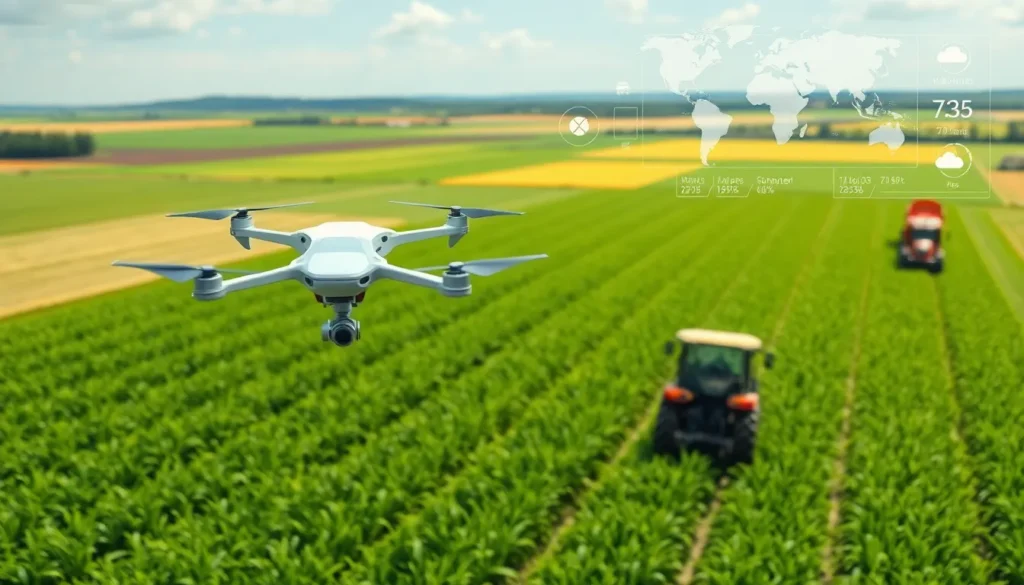
AI is revolutionizing agriculture by enhancing yield predictions, automating farm tasks and promoting sustainable resource use through intelligent monitoring systems. Advanced AI models analyze satellite imagery weather data and sensor inputs to provide precise insights on crop health, soil moisture and pest risks enabling farmers to optimize planting and irrigation schedules. Autonomous machinery such as drones, tractors and robotic harvesters perform planting, fertilizing and harvesting with high accuracy reducing labor costs and increasing productivity.
AI powered precision agriculture tailors fertilizer and water application to specific field zones minimizing waste and environmental impact. Additionally crop genomics accelerated by AI supports the breeding of resilient varieties adapted to changing climates. These technologies collectively drive smarter more sustainable farming practices worldwide improving efficiency and food security
Sources:
- https://farmonaut.com/blogs/ai-in-agriculture-conference-2025-market-size-innovations
- https://www.fjdynamics.com/blog/industry-insights-65/artificial-intelligence-farming-354
- https://www.sciencedirect.com/science/article/pii/S2590005625000396
Finance
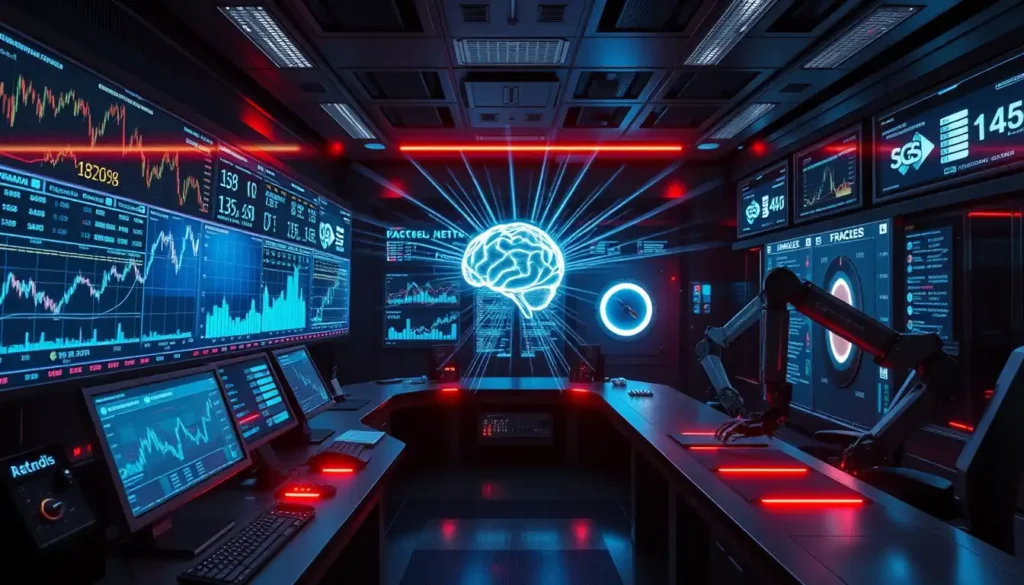
AI’s predictive capabilities are profoundly transforming finance reshaping everything from fraud detection to automated trading. By analyzing vast amounts of transactional and behavioral data in real time AI systems can detect suspicious activities and prevent fraud more effectively than traditional methods enhancing security and customer trust.
Automated trading algorithms powered by AI leverage complex data analysis market sentiment and historical trends to execute high frequency trades at speeds unattainable by humans optimizing financial outcomes. AI also supports personalized financial services by tailoring investment advice and product recommendations to individual customer profiles driving improved engagement and satisfaction.
Furthermore AI streamlines compliance and risk management processes by automating monitoring and adapting to evolving regulatory landscapes. As a result AI is not only making financial services more efficient and secure but also enabling innovative, customer-centric solutions that define the future of money management.
Sources:
- https://www.devoteam.com/expert-view/ai-in-banking-2025-trends/
- https://acropolium.com/blog/artificial-intelligence-applications-in-finance-real-world-success-cases/
- https://www.ibm.com/think/topics/artificial-intelligence-finance
- https://builtin.com/artificial-intelligence/ai-finance-banking-applications-companies
- https://www.deloitte.com/ng/en/services/consulting-risk/services/how-artificial-intelligence-is-transforming-the-financial-services-industry.html
The Role of Advanced Robotics and Intelligent Automation
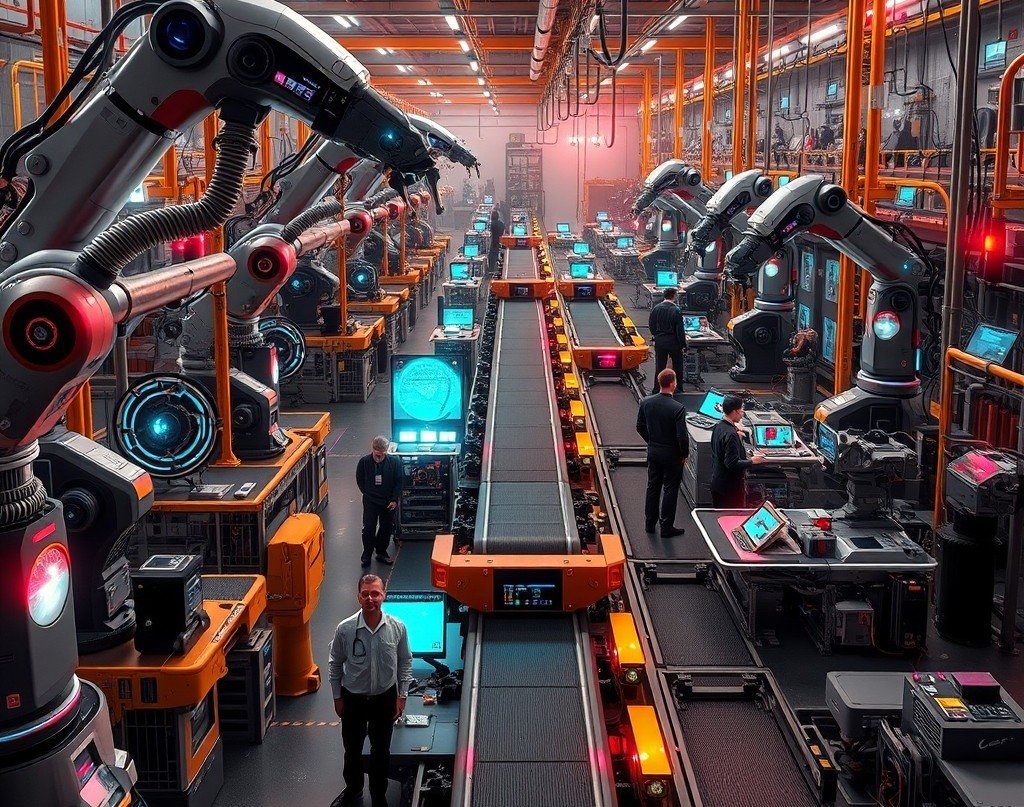
Advanced robotics and intelligent automation are at the heart of AI’s future. Robots powered by AI can perform surgeries, work in hazardous environments, and even assist in elder care. Intelligent automation will eliminate repetitive tasks in business operations, leading to significant productivity boosts and cost savings.
Ethical Considerations and the Human-AI Relationship
As we move toward a future dominated by AI, ethical questions become critical:
- How do we prevent bias in AI decision-making?
- Who is accountable for an AI system’s actions?
- How do we maintain data privacy and security?
To ensure a safe AI future, governments, tech companies, and global organizations must create frameworks that prioritize transparency, fairness, and ethical governance.
Jobs, Economy and the Future Workforce
AI is set to automate numerous traditional jobs across various industries leading to significant shifts in the global workforce landscape. However this automation also opens the door to new career opportunities that require advanced skills in data analysis, machine learning, AI ethics and effective collaboration between humans and AI systems.
As AI systems become more integrated into everyday operations demand for professionals who can develop, manage and ethically guide these technologies will continue to grow. The future workforce will need to prioritize continuous upskilling and reskilling to stay competitive and adaptable acquiring interdisciplinary skills that combine technical expertise with critical thinking and emotional intelligence. Governments, educational institutions and organizations will play crucial roles in fostering lifelong learning initiatives and accessible training programs.
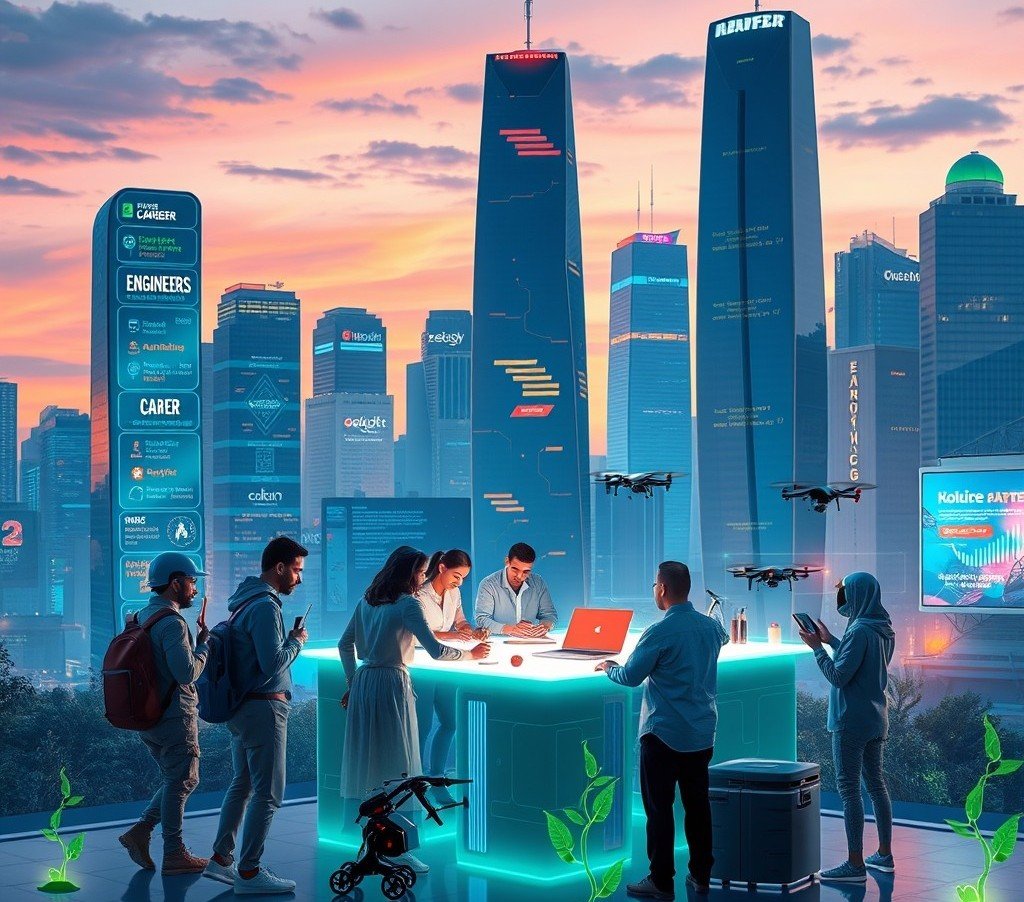
Emphasizing human AI collaboration rather than replacement will be key to maximizing productivity and innovation. This transition presents challenges but also exciting opportunities for meaningful employment in a rapidly evolving economy driven by AI advancements.
AI and Human Augmentation
AI will increasingly act as an extension of the human mind empowering individuals through advanced human augmentation technologies. Innovations such as brain computer interfaces (BCIs), AI driven exoskeletons and augmented reality wearables enable enhanced cognitive and physical capabilities. These systems process vast amounts of data in real time to support augmented decision making helping users perform complex tasks with greater accuracy and efficiency.
Human AI collaboration is becoming standard across industries blending human intuition with machine precision to boost productivity and creativity. The market for AI powered human augmentation including neural implants and smart prosthetics is rapidly expanding driven by healthcare defense and consumer technology sectors.
Ethical frameworks and regulation are evolving alongside these advancements to ensure responsible deployment and safeguard user privacy. This fusion of AI and human capabilities promises to redefine what individuals can achieve ushering in a new era of enhanced performance and accessibility.
Sources:
- https://www.precedenceresearch.com/human-augmentation-market
- https://www.futuremarketinsights.com/reports/human-augmentation-technology-market
- https://peoplemanagingpeople.com/workforce-management/ai-and-human-intelligence/
- https://www.linkedin.com/pulse/human-augmentation-market-size-share-trends-report-forecast-kumar-kirhc
Governments and Global AI Policies
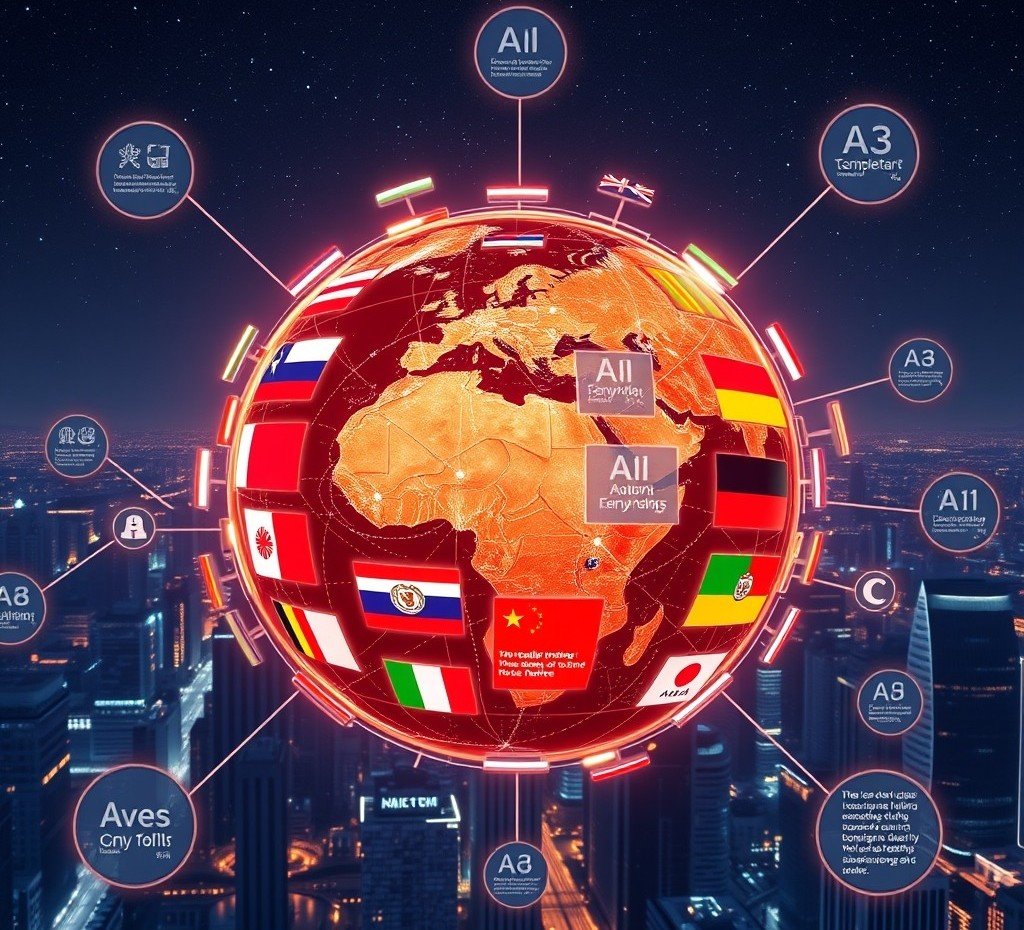
National governments are deploying extensive resources and comprehensive policy frameworks to secure leadership in artificial intelligence while safeguarding public interests. In the United States the Federal government’s America AI Action Plan allocates over $3 billion annually to AI research and infrastructure establishes a National AI Research Resource to broaden data and compute access and directs interagency coordination on frontier AI security and ethics.
https://digital-strategy.ec.europa.eu/en/policies/regulatory-framework-ai
The European Union’s AI Act enshrines a risk based regulatory regime ranging from banned “unacceptable risk” applications to minimal risk systems while harmonising rules on transparency, data governance and civil liability to foster safe human centric innovation across all member states.
The OECD Recommendation on Enhancing Access to and Sharing of Data offers internationally agreed principles for whole of government data sharing strategies balancing, cross sectoral data-driven innovation with privacy, security and fairness throughout AI lifecycles. China’s New Generation AI Development Plan sets out clear milestones for 2025 and 2030 mobilises military civil fusion, open source collaboration and targeted state funding and establishes interministerial bodies to coordinate AI R&D, infrastructure build out and ethical governance.
https://digital-strategy.ec.europa.eu/en/policies/regulatory-framework-ai
Alongside investment and regulation governments are revising intellectual property regimes and executive orders to protect AI generated innovations and mandate bias mitigation, explainability and human oversight. By building secure data sharing infrastructures such as the US National AI Research Resource and the EU’s European Data Strategy and codifying ethical guardrails these national policies will collectively determine global AI innovation pathways, data flows and competitive balances
Challenges Ahead for Artificial Intelligence of the Future
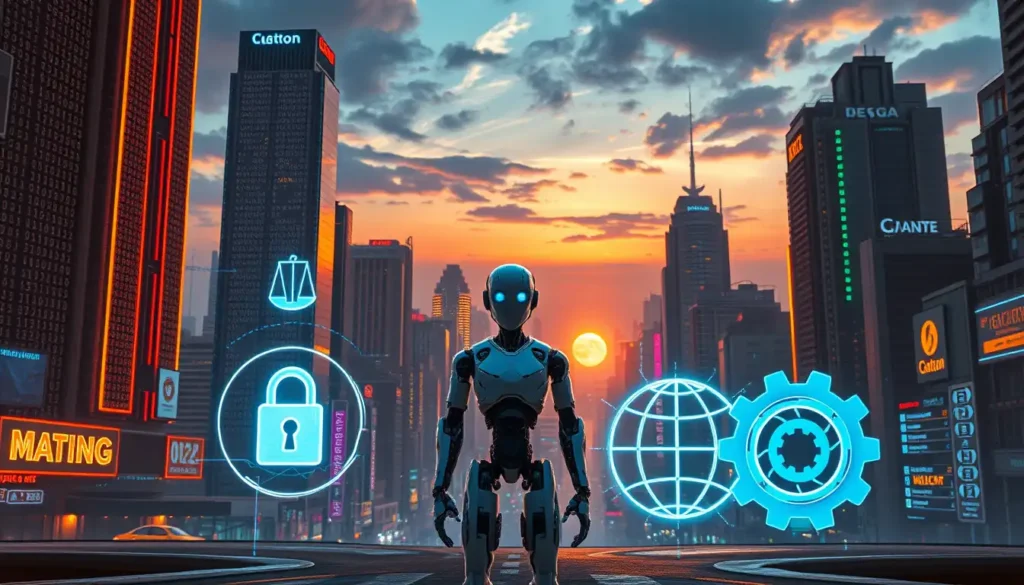
- Bias and Discrimination: Training data may encode societal biases that AI systems learn and propagate.
- Security Risks: AI can be weaponized for cyberattacks or surveillance.
- Control and Autonomy: Ensuring that humans remain in control of increasingly autonomous systems is vital.
- Digital Divide: AI could widen the gap between developed and developing nations.
Conclusion
The Artificial Intelligence of the Future promises to be transformative, innovative and potentially disruptive. As we edge closer to realizing the dream of intelligent systems that can think, learn and evolve we must also embrace responsibility. The future of AI lies not just in technology but in how we choose to shape it for good, for growth and for all.
FAQs
1. What is the future of artificial intelligence?
The future of artificial intelligence involves transformative growth across sectors like healthcare, education, and automation. AI will enhance human capabilities and decision-making through smarter systems.
2. What jobs will AI replace by 2050?
By 2050, AI may replace jobs involving repetitive tasks such as data entry, basic accounting, and some transportation roles. However, it will also create new opportunities in AI supervision, design, and ethics.
3. What does Elon Musk think about the future of AI?
Elon Musk believes AI could surpass human intelligence and pose existential risks if not regulated. He advocates for proactive safety measures and responsible development.
4. What is the future of AI in 2050?
By 2050, AI will likely be embedded in most daily technologies, from autonomous vehicles to advanced healthcare systems. It will serve as a critical backbone for global digital infrastructure.
5. Can AI take over humanity?
AI cannot take over humanity on its own, but misuse or lack of regulation could pose serious risks. The future depends on maintaining strong human oversight and ethical governance.
